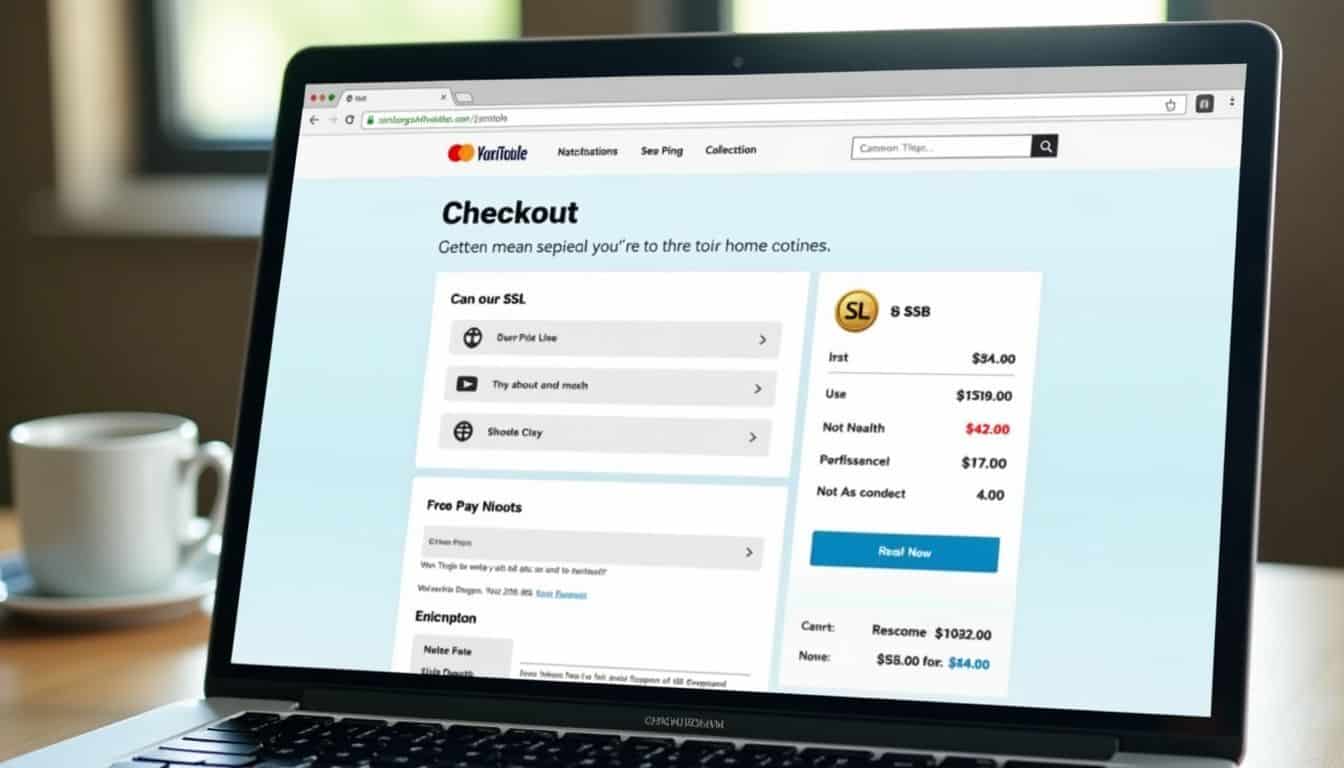Choosing the right payment gateway can make or break your online store’s success. Payment gateways act as the bridge between your website and the banks that process customer payments.
This guide will walk you through six types of payment gateways to help you pick the perfect match for your business needs.
Key Takeaways
Payment gateways come in six main types: hosted, self-hosted, API-hosted, local bank integration, mobile, and direct post integration.
Hosted gateways like PayPal redirect customers to external sites, making them secure but less branded. Self-hosted options keep customers on your site but require more security work.
Mobile payment gateways now handle 50% of all e-commerce transactions worldwide, with 85% of shoppers reporting high satisfaction with these methods.
When choosing a gateway, compare integration ease, fees (like Stripe’s 2.9% plus 30 cents per sale), transaction speed, security features, and customer experience.
Fast payment processing matters – gateways that complete transactions in under 3 seconds can boost sales by 30% and reduce cart abandonment.
Table of Contents
What Is a Payment Gateway?

A payment gateway acts as a digital bridge between your online store and the banks that process money. This tech tool checks credit card details, sends data to banks, and moves funds to sellers after sales.
Think of it as a virtual cash register that handles all the steps when someone buys from your website.
I have set up various payment systems for e-commerce sites and found that the right gateway makes a huge difference in checkout success rates.
The best ones offer smooth integration with your existing platforms while providing detailed payment analysis reports to track performance.
Main Types of Payment Gateways

Payment gateways come in several main types, each with its own setup and benefits for online stores.
Hosted Payment Gateways

Hosted payment gateways act as digital middlemen for your online store and iGaming payment solution needs. These systems redirect your customers to external sites like PayPal Standard or Stripe Checkout to complete their purchases.
The main appeal lies in their simplicity—you do not need to worry about complex security rules because the third party handles all payment data.
For tech-savvy merchants, these gateways offer a trade-off between ease and control. You gain quick setup and built-in security but sacrifice some branding power and user flow control.
Your customers must leave your site to pay, which might affect their shopping experience. Major providers like Corefy have built customer trust worldwide.
Self-Hosted Payment Gateways

Unlike hosted options, self-hosted payment gateways collect payment data directly on your website.
This setup gives you total control over the checkout process and lets you build a custom payment experience with your brand’s look and feel.
Self-hosted systems come with benefits and challenges. The main pros include full control of the payment process and better branding options. The drawbacks involve higher setup costs and more technical work.
Your team must handle PCI DSS compliance rules to protect card data. This means you take on the full job of keeping customer payment info safe through proper encryption and security measures.
API-Hosted Payment Gateways
 API-hosted payment gateways connect your site directly to payment systems through code. Stripe and Razorpay lead this category with tools that keep customers on your website during checkout.
API-hosted payment gateways connect your site directly to payment systems through code. Stripe and Razorpay lead this category with tools that keep customers on your website during checkout.
These gateways offer real-time processing and handle high volumes of transactions without sending shoppers to another site. Your tech team can customize the payment process to match your brand.
The main benefit is control, but you need tech skills to set everything up. Your team must secure SSL certification and handle data protection themselves.
Many online shops choose this option because it creates a smoother buying process.
Local Bank Integration Gateways

Local Bank Integration Gateways link directly with regional banks to process payments without middlemen. Many tech-savvy merchants prefer these gateways because they charge lower fees than global processors.
The direct bank connection builds customer trust with local shoppers who feel more secure using familiar financial institutions. Local bank gateways often have fewer features than international payment systems.
The setup requires dealing with complex bank APIs, which demands solid coding skills. Most businesses should examine both the pricing structure and support quality before choosing this option.
Specialized Types of Payment Gateways

Beyond standard options, the market offers payment gateways built for specific needs. These specialized systems help businesses handle unique payment situations or target specific customer groups.
Mobile Payment Gateways

Mobile payment gateways focus on smartphone transactions through apps like PayPal, Stripe, and Apple Pay.
These systems offer major perks for online payments—they are easy to use, secure, and work well with digital wallets, similar to how blockchain gaming platforms handle in-game transactions.
My tech team tested several mobile solutions and found they process payments faster than traditional methods.
Mobile wallets now handle 50% of all e-commerce transactions worldwide, and about 85% of shoppers report high satisfaction with mobile wallet experiences.
The systems encrypt card data using TLS protocols and tokenization, making them safer than standard checkout methods.
Mobile gateways depend on a stable internet connection and may face technical glitches during peak times.
Direct Post Integration Gateways

Direct Post Integration Gateways offer a smart middle ground for online stores. These systems send payment data straight to processors without storing sensitive details on your servers.
Your customers remain on your website during checkout as their card info travels directly to the payment company through secure channels.
This setup boosts security through PCI DSS compliance and SSL encryption while keeping the shopping experience smooth. Tech teams value these gateways because they maintain brand control while reducing security risks.
The main challenge lies in keeping your systems in sync with gateway updates.
Key Features to Compare Payment Gateways

Picking the right payment gateway means looking at what matters most for your store. Smart merchants check these key points before signing up for any payment system.
Integration Ease

Integration ease can make or break your payment setup success. The best gateways offer pre-built checkout options that let you start processing payments quickly.
Developers prefer payment systems with clear code samples and ready-made libraries that plug into existing projects. These tools reduce setup time from weeks to hours.
Many top payment providers include SDKs that handle the parts of transaction processing behind the scenes. Your tech team will appreciate gateways that connect well with your current ERP systems and web platforms.
Pricing and Fees
Beyond a smooth setup, payment gateway costs affect your bottom line directly. Fee structures vary widely across providers, with each using different models to charge for their services.
Stripe takes 2.9% plus 30 cents from each sale, while Square offers a slightly lower rate at 2.6% plus 10 cents per transaction.
Some services include monthly subscription fees—Shopify Payments starts at $39 monthly before adding processing fees.
High-volume sellers should consider models like Helcim’s Interchange Plus, which can save money as sales increase.
Smart tech pros compare not only the basic rates but also hidden charges like setup fees, monthly minimums, and chargeback penalties. Extra costs can add up fast and impact profits if the fine print is not read closely.
Transaction Speed
Transaction speed affects your payment system significantly. In tests with high-volume stores, gateways that process payments in under 3 seconds have boosted sales by 30%.
Slow gateways frustrate customers and lead to cart abandonment. The digital payments market will reach $15.24 trillion by 2028, making speed a key factor in staying competitive.
Your checkout process must handle traffic spikes without slowing down. Fast API response times and efficient data processing create a smooth customer experience.
Payment gateways with direct connections to acquiring banks shorten processing time compared to those routing through multiple intermediaries.
Security and Compliance
Security forms the backbone of any payment gateway. PCI DSS compliance is a must-have for protecting customer data.
Over my years building e-commerce systems, I have seen how encryption and tokenization create strong defenses against hackers.
These tools convert sensitive card details into unreadable code that remains safe even if intercepted. Most top gateways now offer 3D Secure and CVV checks to spot fraudulent activity before it happens.
Data breaches can erode customer trust quickly. Merchants choose gateways with address verification systems and real-time fraud detection to minimize risks.
The best platforms use both SSL and TLS protocols to create secure channels for data transfer.
Customer Experience
Customer experience greatly impacts your online store’s success. Payment gateways directly affect how shoppers feel about your site. A smooth checkout boosts sales, while a clunky process drives customers away.
Two?thirds of shoppers will abandon a retailer following a security breach. This means your payment system must be both easy to use and secure.
Merchants commonly offer multiple payment methods to please a broad range of customers. Familiar names like PayPal, Stripe, and Amazon Pay build customer trust through brand recognition.
Your checkout page must work on all devices, whether desktops, smartphones, or tablets. Mobile payments are increasing as more people use a mobile app to shop.
The best gateways provide clear error messages and quick transaction speeds. They also support digital wallets and QR code payments that customers prefer.
How to Choose the Right Payment Gateway

Picking the right payment gateway shapes your business success and customer loyalty. Your choice must match your sales channels, tech setup, and the ways customers shop online.
Assess Your Business Model
Your business type shapes which payment gateway fits best. E-commerce stores require different solutions than subscription services or global sellers.
Check if your customers prefer credit cards, mobile wallets, or local payment methods. Over 63% of online transactions occurred on mobile devices in early 2023, so mobile support matters greatly.
Your sales volume also affects which gateway makes sense—some charge higher fees but offer better features for large merchants. Consider your growth plans too.
If you aim to expand globally, pick a gateway that handles multiple currencies and complies with regional rules. The right payment processor must match both your current needs and future goals.
Fraud detection using AI becomes essential as your business scales. Some payment gateways offer built-in security tools that adapt to your transaction patterns.
These systems can identify unusual buying behavior while keeping the checkout process smooth for customers.
Your ERP integration needs are also important—some gateways connect easily with existing systems while others require custom coding.
Evaluate Technical Requirements
After determining your business model, check if your tech stack can support your chosen payment gateway. Your site’s coding language matters—PHP works with different systems than Python or Ruby.
I once spent three days connecting a Node.js app to a gateway that lacked documentation for JavaScript. Review your current systems. Your ERP, CRM, or shopping cart platform may limit your options.
API access is crucial for self?hosted solutions, while hosted options require less technical work. Ensure the gateway uses strong security like TLS encryption and meets PCI DSS rules.
Consider Global and Local Capabilities
Beyond technical setup, your payment system must operate across borders. Global payment gateways support multiple currencies and alternative payment methods that match local shopping habits.
A gateway that only accepts credit cards might fail in regions where bank transfers or digital wallets dominate. PCI DSS compliance is essential for security standards worldwide.
Your gateway should manage currency conversion clearly. Many systems include built?in tools that display prices in local money. This feature builds customer trust with international shoppers.
The best gateways also adapt to regional payment rules and tax systems automatically.
Focus on User Experience
User experience is vital for your online store’s success. The right payment gateway creates a smooth path to purchase that keeps customers satisfied.
Studies show that hosted gateways often provide simpler checkout processes compared to integrated options, which reduces cart abandonment. Mobile?friendly payment systems are essential for shoppers using mobile devices.
Your payment system should work without problems on all devices. Fast loading times, few form fields, and clear error messages help customers complete purchases quickly.
Good support resources are crucial when payment issues arise; quick solutions help prevent lost sales.
Emerging Payment Gateway Trends
New alternative payment methods, such as cryptocurrency and contactless payments, are growing in importance. Payment processors are exploring digital wallets as a complement to traditional online payment processing.
Merchants can examine new solutions that affect transaction fees and conversion rates.
Disclaimer: This content is for informational purposes only and not a substitute for professional financial or technical advice.
References
https://en.minea.com/image-de-marque/best-payment-gateways-ecommerce
https://www.bigcommerce.com/articles/ecommerce/payment-gateways/
https://gocardless.com/guides/posts/different-types-of-payment-gateway/
https://www.ecommerce-nation.com/choose-payment-gateway-e-commerce/
https://aasaan.app/blog/types-of-payment-gateways/
https://stripe.com/resources/more/types-of-payment-gateways
https://zapier.com/blog/best-payment-gateways/
https://elogic.co/blog/payment-gateway-comparison-a-comprehensive-guide/
https://www.linkedin.com/advice/0/what-most-important-features-look-payment-gateway
https://monei.com/blog/how-to-choose-the-best-payment-gateway/
https://fyst.com/blog/how-to-choose-a-payment-gateway-in-e-commerce-6-key-factors (2024-08-22)
